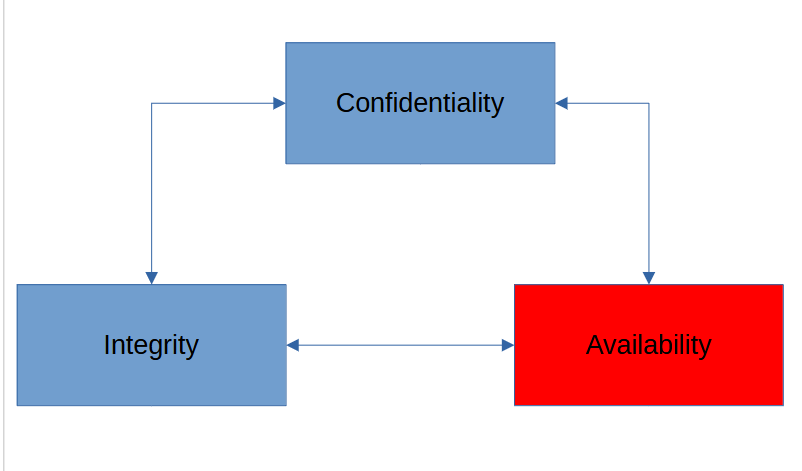Availability is the final part of the CIA Triad. It is as crucial that we keep information available as it would be to keep it in the hands of only those authorized or that it hasn’t been corrupted or modified.
Having data unavailable can be just as damaging as if it fell into the wrong hands or corrupted.
Availability can have strong ties with integrity. Outright deleting files would inhibit availability as well as integrity. On the other hand, having systems go down would also impact availability.
Some measures that we take to improve integrity also work with availability. For starters implementing raid1/5/10 would not only protect the integrity of data but also protect its availability. After all, if a system goes down to a failed drive, we not only experience data loss affecting the integrity, but we also lose access to said data which impacts availability.
Another measure that we can take is to implement load balancing so that we can spread the load equally among systems so that one doesn’t go down due to being overwhelmed by traffic.
Load Balancing directly impacts availability. Having overloaded systems can feel quite similar to a DDoS attack. Too much legitimate traffic can bring down systems like a DDoS attack would.
Itls no surprise that load balancing comes with duplicate systems that we keept in sync. Not only does this gives us the benefit of being capable of handling spikes in traffic, but if one system breaks down, we could fall back on the other remaining systems. Once we repair the malfunctioning system, we bring it back online and load-balanced.
To deal with DDoS attacks, we could utilize services such as Cloudflare to help identify DDoS traffic then mitigate them. Alternatively, once we identify malicious traffic, we can set our routers to redirect traffic to what is called a null route.
This tactic can become quite expensive due to necessitating the acquisition of more routers than we would otherwise need, and we could still get shut down by a big enough DDoS attack.
I’d leave such a tactic to the specialists such as Cloudflare. You’ll pay a monthly fee. However, services such as Cloudflare continuously invest in infrastructure to stop DDoS traffic.
